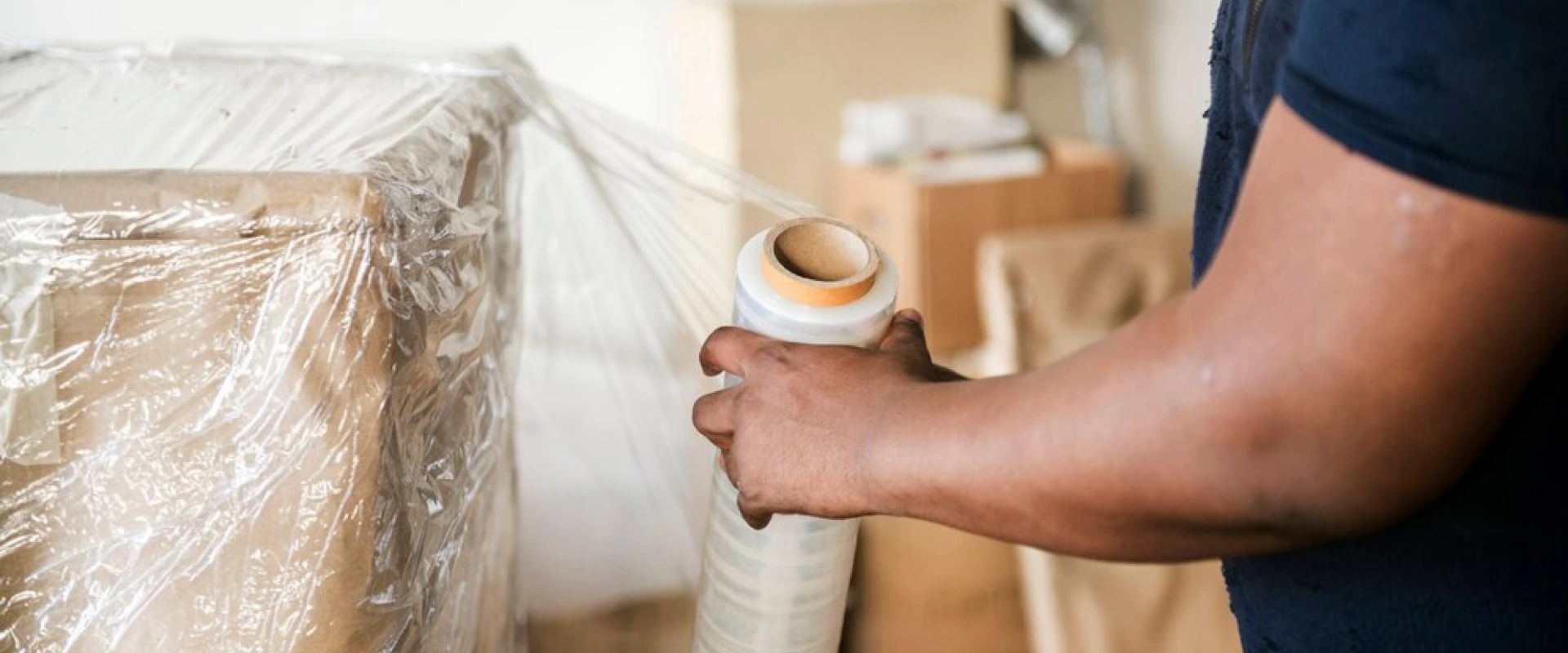In today’s environmentally-conscious world, sustainability has become a key consideration in packaging and shipping practices. Stretch wrap, an essential tool for securing loads during transportation, is no exception. Traditional stretch wrap options, while effective, often contribute to environmental concerns due to their reliance on non-renewable resources and difficulties in recycling. Fortunately, the packaging industry has seen significant advancements in eco-friendly stretch wrap options that offer both performance and sustainability. Here’s a look at some of these green alternatives and how they contribute to sustainable shipping practices.
-
Biodegradable Stretch Wrap
Biodegradable stretch wrap is designed to break down more quickly than conventional plastic wraps once disposed of. This type of stretch wrap contains additives that accelerate the degradation process, allowing it to decompose into non-toxic components. While still providing the protective qualities needed for secure packaging, biodegradable wraps reduce the environmental impact associated with plastic waste.
- Advantages:
- Reduced Environmental Impact: Breaks down faster in landfills or composting environments, reducing long-term pollution.
- Less Harmful: Does not release harmful chemicals as it decomposes.
- Applications: Ideal for companies looking to minimize their carbon footprint and for use in environments where sustainability is a priority.
- Advantages:
-
Recycled Stretch Wrap
Recycled stretch wrap is made from post-consumer or post-industrial plastic materials. By using recycled content, this type of stretch wrap reduces the demand for virgin plastic and helps divert waste from landfills. It maintains similar performance characteristics to traditional stretch wraps but with a reduced environmental footprint.
- Advantages:
- Conservation of Resources: Uses less new plastic, conserving natural resources.
- Waste Reduction: Helps reduce the amount of plastic waste in the environment.
- Applications: Suitable for businesses committed to circular economy principles and those looking to enhance their sustainability practices.
- Advantages:
-
Plant-Based Stretch Wrap
Plant-based stretch wrap, also known as bio-based stretch wrap, is produced from renewable resources such as corn starch or sugarcane. Unlike conventional plastic wraps made from fossil fuels, plant-based wraps offer a more sustainable alternative by utilizing resources that are replenished annually.
- Advantages:
- Renewable Resources: Made from materials that are annually renewable, reducing reliance on fossil fuels.
- Lower Carbon Footprint: Generally has a lower carbon footprint compared to traditional plastics.
- Applications: Ideal for companies seeking to use renewable resources in their packaging operations and reduce their overall environmental impact.
- Advantages:
-
Compostable Stretch Wrap
Compostable stretch wrap is designed to break down into compost under industrial composting conditions. Made from materials such as cornstarch or other organic substances, this wrap provides the benefit of not contributing to landfill waste.
- Advantages:
- Composting: Breaks down into organic matter that can be composted, reducing landfill waste.
- Eco-Friendly Disposal: Offers an environmentally friendly disposal method.
- Applications: Best for businesses with access to industrial composting facilities and those focused on zero-waste goals.
- Advantages:
-
Stretch Wrap with Reduced Plastic Content
Some manufacturers offer stretch wraps that incorporate less plastic without compromising performance. These wraps use innovative technologies to reduce the amount of plastic used while maintaining strength and durability.
- Advantages:
- Less Plastic: Reduces the amount of plastic required for each roll.
- Sustainable Performance: Maintains effective load security while using fewer resources.
- Applications: Suitable for companies looking to minimize plastic use while maintaining effective packaging solutions.
- Advantages:
Conclusion: Find the Right Eco-Friendly Stretch Wrap for Your Needs at NTXSupply.com
Adopting eco-friendly stretch wrap options is a crucial step towards more sustainable shipping practices. By choosing biodegradable, recycled, plant-based, compostable, or reduced-plastic stretch wraps, you can contribute to environmental conservation and reduce the impact of your packaging operations. For a comprehensive selection of eco-friendly stretch wraps and other sustainable packaging solutions, visit NTXSupply.com. NTX Supply offers a range of environmentally conscious products designed to meet your needs while supporting your sustainability goals.

